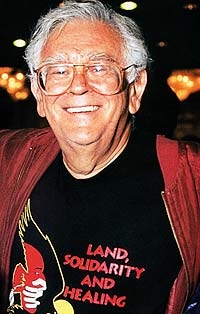 |
| Google Images (Writers from SouthAfricanHistoryOnline.com) |
The word apartheid literally means "A policy or system of segregation or discrimination on grounds of race", it also mean "the lesser population controlling the larger population". The apartheid in South Africa started in 1948 with the introduction of new law separating white and black. The apartheid started with introduction of laws that stated blacks and white could not be married and they had to use different hospitals, buses, school, phones, doorways, seats and even beaches. In the year 1958 the law that all coloured had to carry, and have in order, a passbook that said what they could do and where they could go. This was designed as another way reason to arrests coloureds and as a way to restrict the movement of coloured so there would be very little interaction between whites and coloureds. Once this law was introduced life got much harder for coloured, and the arrests of coloureds went up by 67%. At the beginning of the apartheid in South Africa the population of blacks, and other colored skinned people, out weighted the whites four to one. But because of the Native Lands Act they were restricted to 7.3% of the whole country. Blacks could also only work for white employers, but could only be on whites land to work. Blacks had to live on basically nothing. They made a fifth of what the average white worker made and were still expected to provide for their families. It was also almost impossible for coloureds to be educated. In 1940 less then 30% of blacks were receiving education. But, even though the world knew about the apartheid laws effecting South Africa, it wasn't till the 1980 that other countries pressured the white South African government to repeal the laws. But, even though the world was not fighting for coloureds in South Africa, some black and white fought for the freedom of all races. One of the most influential fighters for coloured freedom was Joe Slovo.
Joe Slovo was one of Nelson Mandela's closest companions in the fight against apartheid. Those two together started the African National Congress' sabotage campaign in 1961. Nelson Mandela himself said, "Joe Slovo dedicated his life against to the struggle justice, democracy and freedom in our country." His motive to fight against apartheid was his wife who was killed by a bomb in 1982. He fought against apartheid for decades using bombs strikes and harsh negotiating. Mr. Joe Slovo led the ANC's guerrilla wing after the movement decided white South Africans would never surrender power to the black South Africans without a fight. He was exiled in 1963 and fled to England. He eventually returned in 1990. The ANC committed to peaceful negotiations 30 years later, Joe Slovo created a crucial compromise under the ANC and the National Party, which eventually led to the first all-race elections in April. That ended apartheid and brought the ANC to power.
oe Slovo was born on May 23, 1926, in Obelai, Lithuania by his mother and father by the names of Woolf and Ann. When he was 9, he and his family relocated to Johannesburg, South Africa to get away from rising anti-semitism. While he was there, he attended many different schools, such as the Jewish Government School. Slovo enrolled at the University of Witwatersrand in 1946 to major in law, later graduating in 1950 with his degree. He later became more interested in politics and married his first wife, Ruth First. After his graduation, he worked on becoming an advocate and defense lawyer. By the end of the year 1950, both Slovo and his wife got banned under the "Suppression of Communism Act" and were banned from the public media. Nevertheless, Joe continued to be an advocate for the "Communist Party" and other anti-apartheid groups. As the founder of the "Congress of Democrats", Slovo served on the "National Consultative Committee of Congress Alliance" and helped draft the "Freedom Charter" document. Because of this, he was arrested under the charge of high treason.
In 1963, Slovo fled South Africa and spent 20 years in exile. Later in 1966, he went to the "London School of Economics" where he got his Master of Law. Then in 1969 Joe was appointed the the A.N.C.'s revolutionary council and helped draft strategy documents and was thought to be the A.N.C.'s main theoretician. 1977, he moved to Maputo, a small town in Mozambique. There he established a new headquarters for the A.N.C. and thought up many MK operations in South Africa. Later on in 1984, the Mozambican government kicked him out in accordance with the signing of the "Nkomati Accord" with South Africa. A bit later in 1985, Slovo became the first white member of the A.N.C., was appointed general secretary of the "South Africa Communist Party" in '86, and chief of staff of MK in '87.
February 1990, Joe returned to South Africa and became a key negotiator between the "National Party" and anti-apartheid groups . He was also personally responsible for a 'sunset clause', which climaxed to the power sharing "Government of National Unity". And on January 6th, 1995, Joe Slovo died of Leukemia and was laid to rest, all his great deeds remaining in history books forever.
Page created on 3/3/2012 3:34:29 PM
Last edited 3/3/2012 3:34:29 PM
